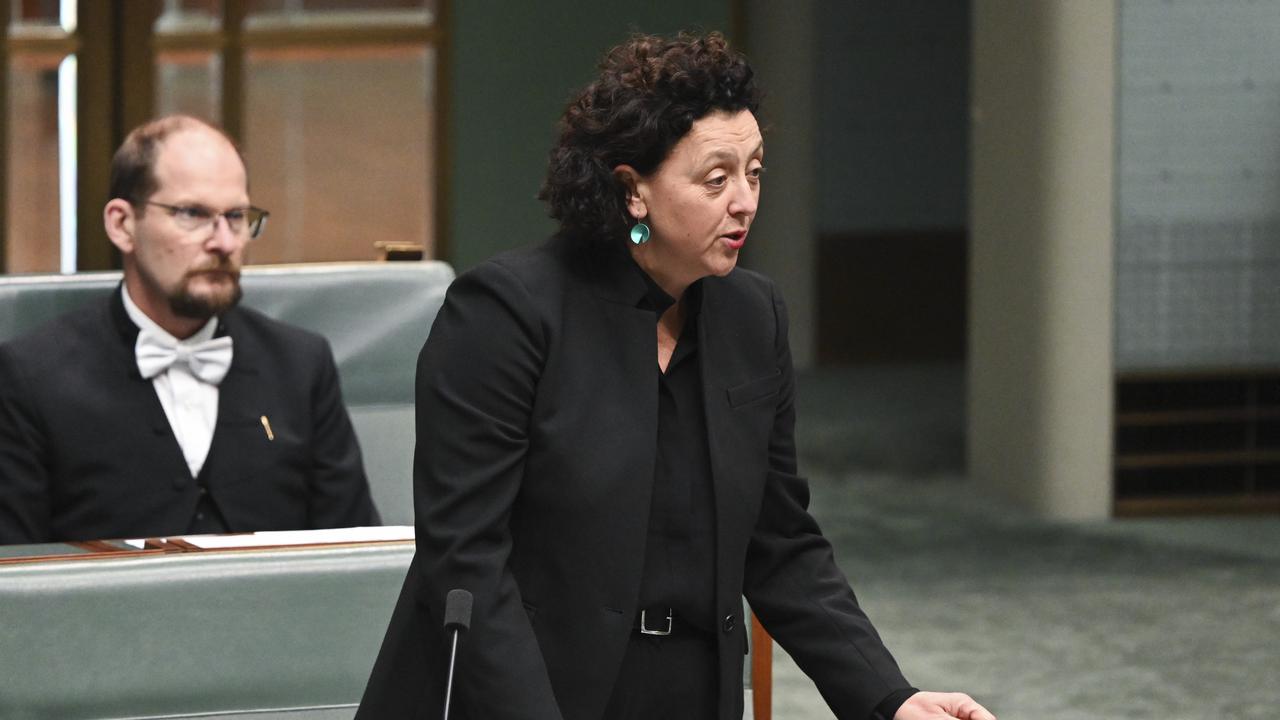Hung out to dry by HECS rules – 200,000 call for change
Almost 3m graduates owe $78bn in student loans – an average of $26,500 each. It’s a burden that comes into focus years down the line as many first home buyers are learning.

Business
Don't miss out on the headlines from Business. Followed categories will be added to My News.
When heading off to university, the end cost isn’t typically top of mind for students.
And for those who even factor it in, it’s a distant problem to be dealt with when, and if, they start earning decent money. Now, even this is a luxury, it seems.
The crippling cost of higher education is not only starting to affect what Australians choose to study, but whether they even get a degree at all.
And the situation is arguably worse for those in their 20s and 30s. This unfortunate group who went to university believing HECS (or HELP) would not be treated like other debt and are now looking to get on the property ladder, only to be told by their broker or bank that their borrowing capacity has been reduced by tens of thousands of dollars. And all because they went to uni.
Drowning in debt
All up, almost three million graduates owe the government $78bn in student loan debt – that’s an average of $26,500 each.
And higher inflation means, for many, the debt is growing faster than they can pay it off.
Indeed, half of those with HECS-HELP debt are still carrying it around when they’re 40, painting a worrying picture for a cohort in their prime earning years. (The mandatory annual salary repayments commence at $51,550 a year.)
With an escalating housing crisis and rising cost of living, there are growing calls for the federal government to step in and make some changes to ease the burden. One of the proposed changes is to tweak how the debt is indexed. Another is for HECS debt to be omitted from bank loan applications.
The HECS system, introduced in 1989 to assist with the cost of higher education, when a degree cost $1800 a year, has become a millstone around the neck of students and graduates in Australia, independent MP Monique Ryan says.
“It’s affecting their choices of what study degrees they choose to study, but it’s also now beginning to impact on young people’s ability to get home loans and car loans. And I don’t think that that was what the government intended when it brought in the HECS system back in 1989,” Ryan says.

Complaints about HECS are nothing new, but CPI indexation of 7.1 per cent in June last year put the issue firmly in the spotlight.
Among the chief criticisms is that the system delivers an annual increase to debt based on CPI before the repayments of the previous 12 months are even counted.
Ryan wants the indexation rules to change.
More than 200,000 Australians agree with her, based on a petition she started just two weeks ago that has since garnered 216,000 signatures, and counting.
“We’ve specifically asked for the government to change the way that HECS debts are indexed. So rather than just indexing them to the consumer price index, they should be indexed to the lower of CPI or the increase in wages,” she says.
Education Minister Jason Clare has hinted that relief for indebted graduates may be on the way in the coming months, but is yet to make firm commitments.
Layers of impact
The issue is not just with indexation. HECS debt has layers of impact that only become clear many years down the line and is a greater burden on women, who typically take time out of the workforce to have children in their 20s and 30s and then watch as their student debt gets indexed even as they take unpaid parental leave.
Prospective homebuyers are punished too. From 2022, when APRA clarified macroprudential credit measures, banks have been counting HECS debts when calculating debt-to-income ratios, making it even harder for millennials and gen Z to get into their first home.
This debt is not the same as other forms of debt and, as such, should not be treated the same by lenders, Ryan argues.
“HECS really only kicks in once you hit a certain income rate. So it doesn’t impact you in the same way (as other debt).
“And so it would be reasonable for banks to look at post-tax income when assessing suitability for loans and not take into account HECS debt as such because it is a theoretical debt that only kicks in at certain points.”
‘People are struggling to get loans because of these, sometimes very considerable, HECS debts’
Monique Ryan, independent MP
Ryan and others are calling on the government to seek from the prudential regulator a change in how HECS is calculated in credit measures. This was also a recommendation in the Universities Accord report released last month following a year-long review of higher education.
The report called for a review of bank lending practices to ensure that HECS-HELP loans “are not treated in a way that unduly limits people’s borrowing capacity for loans’’.
“Unless someone earns sufficient income, there is no obligation to repay (HELP debts), and as such they should be treated differently,’’ the report said.
Changes to how student debt is treated by lenders would make “a real difference” to borrowers, Ryan says.
“People are struggling to get loans because of these, sometimes very considerable, HECS debts.”
The ballooning cost of housing, higher rates and stricter lending policies are all challenging the first-home buyer, a fact that bank bosses again acknowledged this week.
At a business summit on Tuesday, the Australian Banking Association’s Anna Bligh warned that borrowers who could not access the mainstream banking system were going to non-bank lenders, where they paid higher rates and faced less support “if they get into trouble”.
At the same event, outgoing NAB boss Ross McEwan suggested the pendulum on regulation might have swung too far after the banking royal commission.
But APRA chair John Lonsdale appears in no rush to change the status quo, telling the same summit this week that he had little appetite to reduce standards in the face of new financial risks.
Originally published as Hung out to dry by HECS rules – 200,000 call for change









